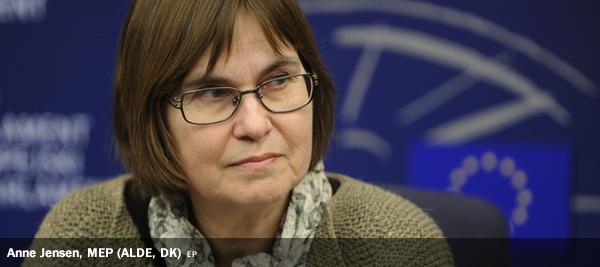After negotiating through the night, Parliament and Council struck a deal on the EU budget for 2014, which also provides for remedying payments shortfalls in in the current fiscal year. MEPs ensured that victims of catastrophic flooding and drought in 2013 will be compensated, and that its priorities for 2014 in areas such as employment, research and innovation, border management and humanitarian aid are also taken on board.
In payments, €500 million were added to the 2014 budget, bringing the total compared to the initial Council position to €135.5 billion. Commitments were set at €142.6 billion, which is in line with the Commission’s budget proposal. This outcome is important with a view to the approval of the EU’s long-term budget 2014-2020, which is still pending.
Anne Jensen (ALDE, DK), who is steering the 2014 budget through Parliament, labels the outcome as “an austerity budget” given that it is almost 6% down on this year. “But I am glad we managed to secure more funds for growth policies for research, education and innovation and for humanitarian aid in the Middle East”, she added.
“Parliament has taken its responsibility by accepting a lower budget. But we managed to get the priorities right and prevent the EU from starting 2014, the first year under the new Multi-annual Financial Framework, in the red”, said Budgets Committee Chair Alain Lamassoure (EPP, FR), welcoming he outcome.
The Council agreed to Parliament’s demands for more money to counter skyrocketing youth unemployment across the EU. Budgets for investing in policy areas aiming to boost economic growth, such as research (Horizon 2020), the digital agenda, small- and medium sized enterprises (COSME) and education (Erasmus+) will also increase substantially as compared to the Council’s proposal.
Parliament also won the support of EU member states to strengthen FRONTEX, the EU’s external border management agency and the Asylum Support Office. The EUROPOL law enforcement agency will also be reinforced, given its new tasks related to cybercrime.
Parliament managed to secure more funds to meet the EU’s international obligations in the Middle East through the UN Reliefs and Works Agency (UNRWA) and in view of the growing numbers of Syrian refugees.
Parliament in turn agreed to the member states’ wishes to increase funding for Cyprus, which was part of the rescue package when it was on the brink of default.
Parliament’s Budgets Committee will vote amending budget 9, to cover part of the flood compensations and make good the shortfall in research programmes, on 14 November.
If all the conditions are met, the Committee could approve the Multi-annual Financial Framework (MFF) at the same meeting. Parliament as a whole could then vote on the MFF on Tuesday 19 November and the 2014 budget on Wednesday 20 November.
